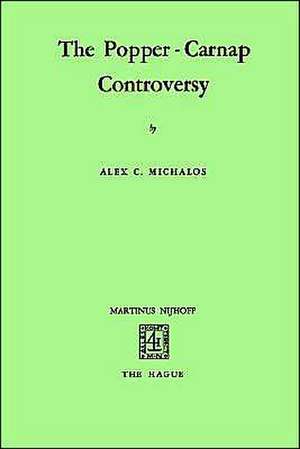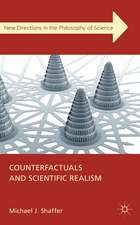The Popper-Carnap Controversy
Autor Alex C. Michalosen Limba Engleză Paperback – 31 iul 1971
Preț: 372.76 lei
Nou
Puncte Express: 559
Preț estimativ în valută:
71.36€ • 73.39$ • 59.20£
71.36€ • 73.39$ • 59.20£
Carte tipărită la comandă
Livrare economică 17 februarie-03 martie
Preluare comenzi: 021 569.72.76
Specificații
ISBN-13: 9789024751273
ISBN-10: 9024751276
Pagini: 140
Ilustrații: XI, 124 p.
Dimensiuni: 160 x 240 x 7 mm
Greutate: 0.2 kg
Ediția:Softcover reprint of the original 1st ed. 1971
Editura: SPRINGER NETHERLANDS
Colecția Springer
Locul publicării:Dordrecht, Netherlands
ISBN-10: 9024751276
Pagini: 140
Ilustrații: XI, 124 p.
Dimensiuni: 160 x 240 x 7 mm
Greutate: 0.2 kg
Ediția:Softcover reprint of the original 1st ed. 1971
Editura: SPRINGER NETHERLANDS
Colecția Springer
Locul publicării:Dordrecht, Netherlands
Public țintă
ResearchCuprins
I: Introduction.- II: Acceptability and Logical Improbability.- III: Two Explicanda and Three Arguments.- IV: Bar-Hillel’s “Comments” and Unrestricted Universals.- V: Instance and Qualified-Instance Confirmation.- VI: The Singular Predictive Inference.- VII: Lakatos on Appraisal, Growth and Analytic Guides.- VIII: Hintikka and Hilpinen on Inductive Generalzation.- IX: Cost-Benefit Versus Expected Utility Acceptance Rules.- List of Reference.
















